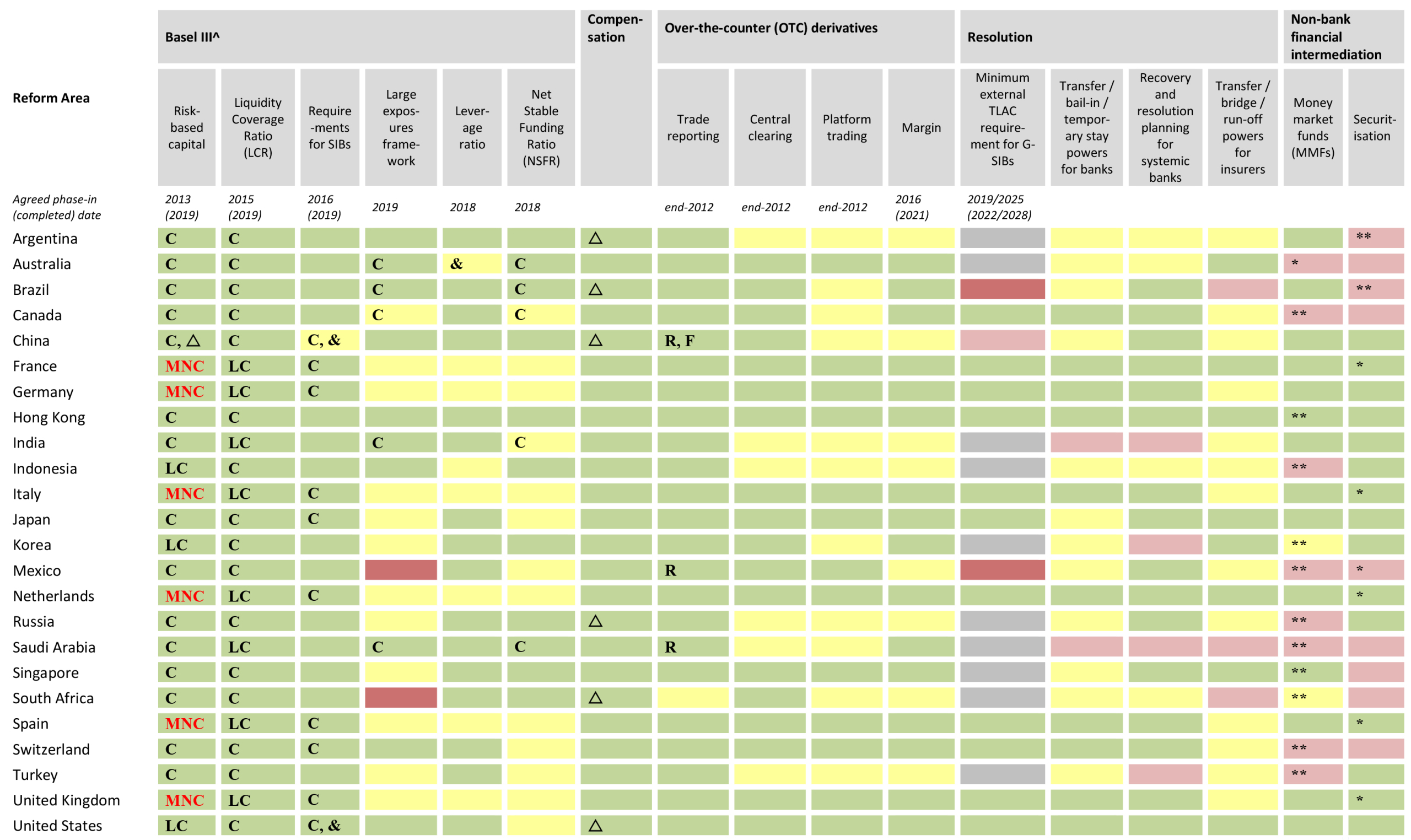Press enquiries:
+41 61 280 8138
[email protected]
Ref no: 36/2019
The Financial Stability Board (FSB) today published its 2019 annual report on the implementation and effects of the G20 financial regulatory reforms.
The report, which has been delivered to the G20 meeting this week, sets out that implementation of the reforms called for by the G20 after the global financial crisis is progressing. This is contributing to an open and resilient financial system that supports the efficient provision of financing to the real economy.
Yet it is critical to maintain momentum and avoid complacency, in order to fully achieve the goal of greater resilience as vulnerabilities are evolving. Rapid structural and technological change require continued vigilance to maintain a sound and efficient financial system.
An open and resilient financial system, grounded in agreed international standards, is crucial to support sustainable growth. It requires the support of the G20 in implementing the agreed reforms and reinforcing global regulatory cooperation.
The report in particular recommends that:
-
Regulatory and supervisory bodies should lead by example in promoting the timely, full and consistent implementation of remaining reforms. This will support a level playing field and avoid regulatory arbitrage.
-
Frameworks for cross-border cooperation between authorities should also be enhanced in order to build trust, allow the sharing of information, and preserve an open and integrated global financial system.
-
Authorities should evaluate whether the reforms are achieving their intended outcomes, identify any material unintended consequences, and address these without compromising on the objectives of those reforms.
-
Financial stability authorities should continue to contribute to the FSB’s monitoring of emerging risks and stand ready to act if such risks materialise.
Notes to editors
This report includes an implementation dashboard that summarises, in a colour-coded table, the status of implementation across FSB jurisdictions for priority reform areas. As part of its reporting, the FSB also published today the latest annual survey responses by its member jurisdictions on implementation of other areas of reform together with summary tables and jurisdiction profiles on implementation progress. Taken together, these reports provide a comprehensive picture of the implementation of the G20 financial regulatory reforms.
As part of its ongoing evaluation work, the FSB published a consultation paper in June 2019 that examined the effects of the post-crisis financial regulatory reforms on the financing of small and medium-sized enterprises. The FSB will publish its finalised report on this topic next month, taking account of public comments.
The FSB coordinates at the international level the work of national financial authorities and international standard-setting bodies and develops and promotes the implementation of effective regulatory, supervisory, and other financial sector policies in the interest of financial stability. It brings together national authorities responsible for financial stability in 24 countries and jurisdictions, international financial institutions, sector-specific international groupings of regulators and supervisors, and committees of central bank experts. The FSB also conducts outreach with approximately 70 other jurisdictions through its six Regional Consultative Groups.
The FSB is chaired by Randal K. Quarles, Governor and Vice Chairman for Supervision, US Federal Reserve; its Vice Chair is Klaas Knot, President, De Nederlandsche Bank. The FSB Secretariat is located in Basel, Switzerland, and hosted by the Bank for International Settlements.
